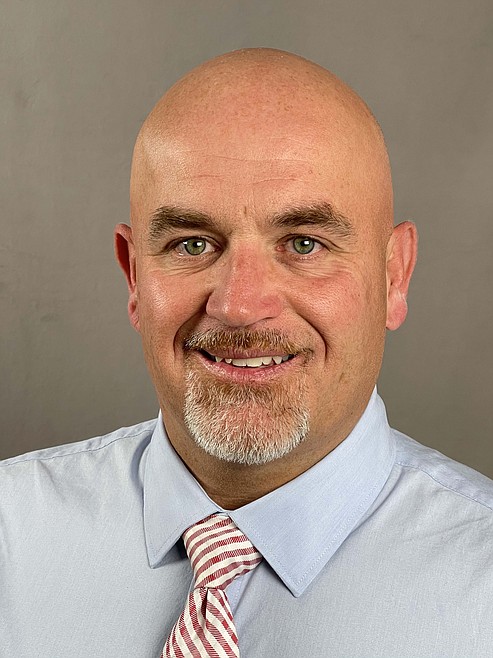Big boost for behavioral health services
The demand for behavioral health services in North Idaho greatly exceeds available services.
Options are limited for residents who need treatment for substance abuse disorders and mental health conditions and many people are going without the treatment they desperately need, said Panhandle Health District Director Don Duffy.
“We struggle with having enough mental health resources in our community,” said Duffy. “Patients can have a three to a six-month waiting period before they can see a mental health professional and that is tragic.”
The North Idaho Crisis Center, a partnership comprised of Kootenai Health, Panhandle Health District and Heritage Health, serves men and women from Idaho’s 10 northern counties who need immediate help to de-escalate behavioral health crisis situations. Services include suicide prevention, safety planning and crisis counseling. It’s a short-term facility and individuals can stay up to 24 hours. Typically, patients who visit the crisis center are then referred to follow up treatment with a mental health professional in the community.
This can present a problem due to the lack of resources. Kootenai Health closed its Addiction Recovery Center and Outpatient Psychiatry Practice in May, citing staffing shortages and chronic underfunding.
Heritage Health has struggled to meet the increased demand due to several factors, said CEO Mike Baker.
“Like everyone else, we are having a hard time hiring counselors and therapists due to the housing market and employment situation in North Idaho,” said Baker. “Across our different service lines, we have waiting lists of six months or more for patients to be seen by a mental health professional. It’s why our teams have been working so hard.”
Baker is optimistic things are going to get better.
“There is light coming through the darkness,” said Baker. “We’re going to be able to turn the tide.”
Part of the reason for Baker’s optimism is that Heritage Health received a $4 million federal grant to become a Certified Community Behavioral Health Clinic (CCBHC) from the Substance Abuse and Mental Health Services Administration.
Heritage Health is one of three community health centers in Idaho to receive this grant, with the goal of standing up the first Community Behavioral Health Clinics in Idaho.
“This funding will allow us to hire more providers and help people who desperately need to be treated,” said Baker. “We’re so excited. It’s going to change people’s lives for the better and that’s at the core of our mission.”
“The goal of a CCBHC is to increase access to quality, evidence-based behavioral health services of all sorts, including crisis response, medication management, therapy services, substance use disorder treatment and case management” said Dr. David Atkins, VP of Medical Services. “As we streamline access to our existing services, we plan to expand the scope and grow our workforce to meet the needs of the community.
“Within the CCBHC model, there are front-end evaluators who are able to determine which services are needed, plus integrated medical providers to rule-out medical causes of behavioral health concerns. Case managers are then available to assist clients in overcoming barriers to care, helping them access the extensive behavioral health services available at Heritage Health. Coordinating care, both within Heritage as well as the community, will maximize the level of care provided and lead to better outcomes overall.”
In addition to the four-year grant, Heritage Health merged with Big Lake Psychological Services at the end of September. This allows Heritage Health to offer neurobehavioral services to children, adolescents and adults in the region, with a particular focus on developmental disabilities. The Neurobehavioral Services office is at 1809 E. Sherman Ave. in Coeur d’Alene.
“Parents looking for resources to help their children haven’t had a lot of options,” said Heather Rehil-Crest, a psychologist who founded Big Lake. “I am excited to be a part of the Heritage Health team.”
Heritage Health also recently moved its Psychiatric Services clinic to 1038 Northwest Blvd., Coeur d’Alene as part of its growing behavioral health team to meet increasing demand. Keelin Hines, a nurse practitioner who was recently hired to work in the psychiatric services department, said she has a passion for helping people with mental health conditions.
“It’s a very interesting field of medicine,” said Hines. “There is a lot of listening in this patient population. They just want to be heard. I want to help them with their whole self. That includes diet and exercise. They can feel better. We just have to serve them as a complete person.”
The anticipated improvements won’t solve the mental health challenges throughout the region and the state. Idaho lacks long-term care treatment facilities for people struggling with addiction and mental health issues. There are some private assisted living facilities for people with long-term mental disabilities, but those also have long waiting lists to get into and they’re expensive.
The social stigma associated with mental health illnesses is also a major problem, said Panhandle Health District Director Don Duffy.
“Working together, we can reduce the stigma associated mental health treatment and save lives," Duffy said. “The impressive work of Heritage Health and other local providers makes it clear that you are not alone in your struggle with mental illness.”
• • •
Marc Stewart is employed as a content strategist with Heritage Health in Coeur d'Alene.

